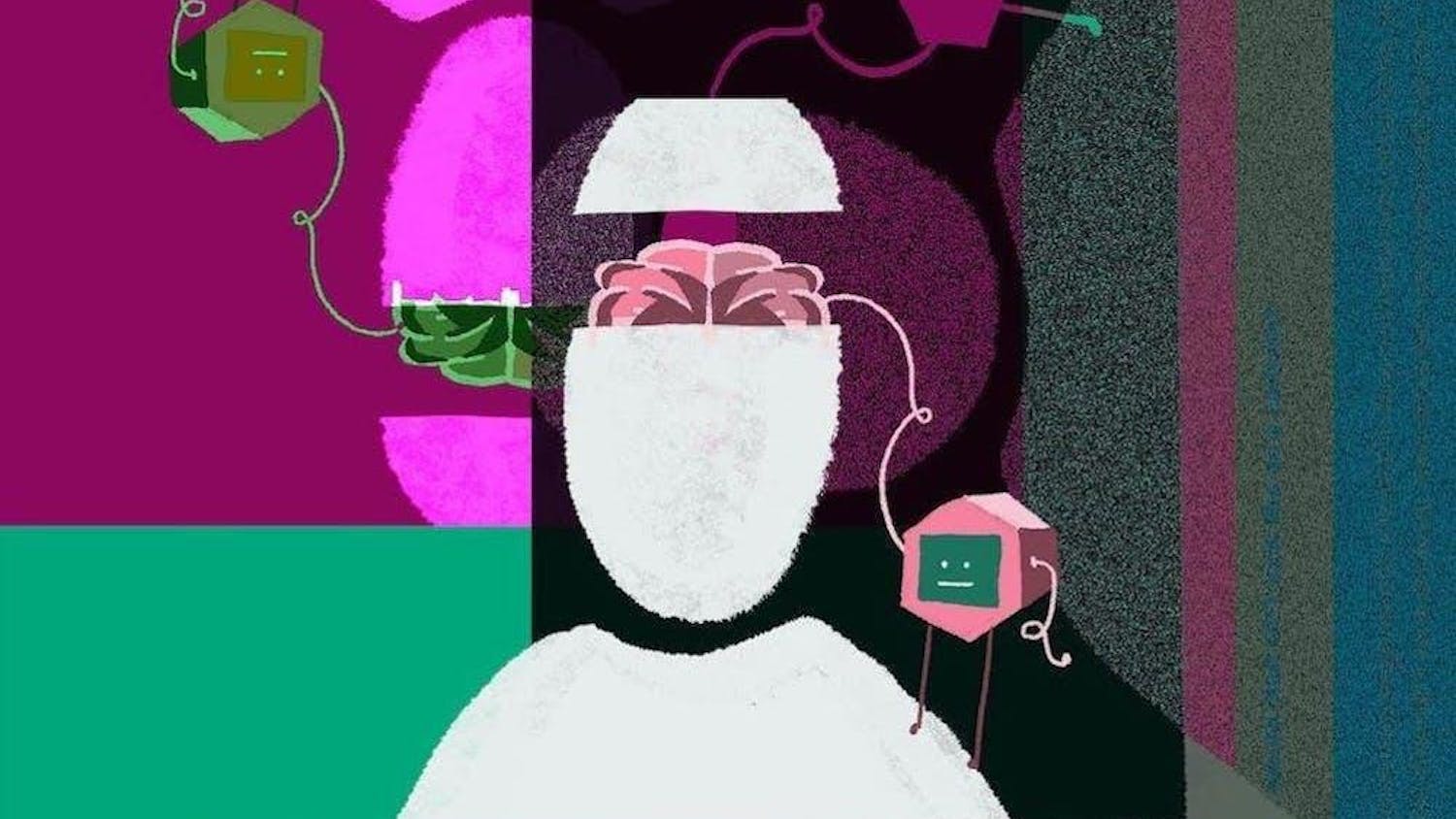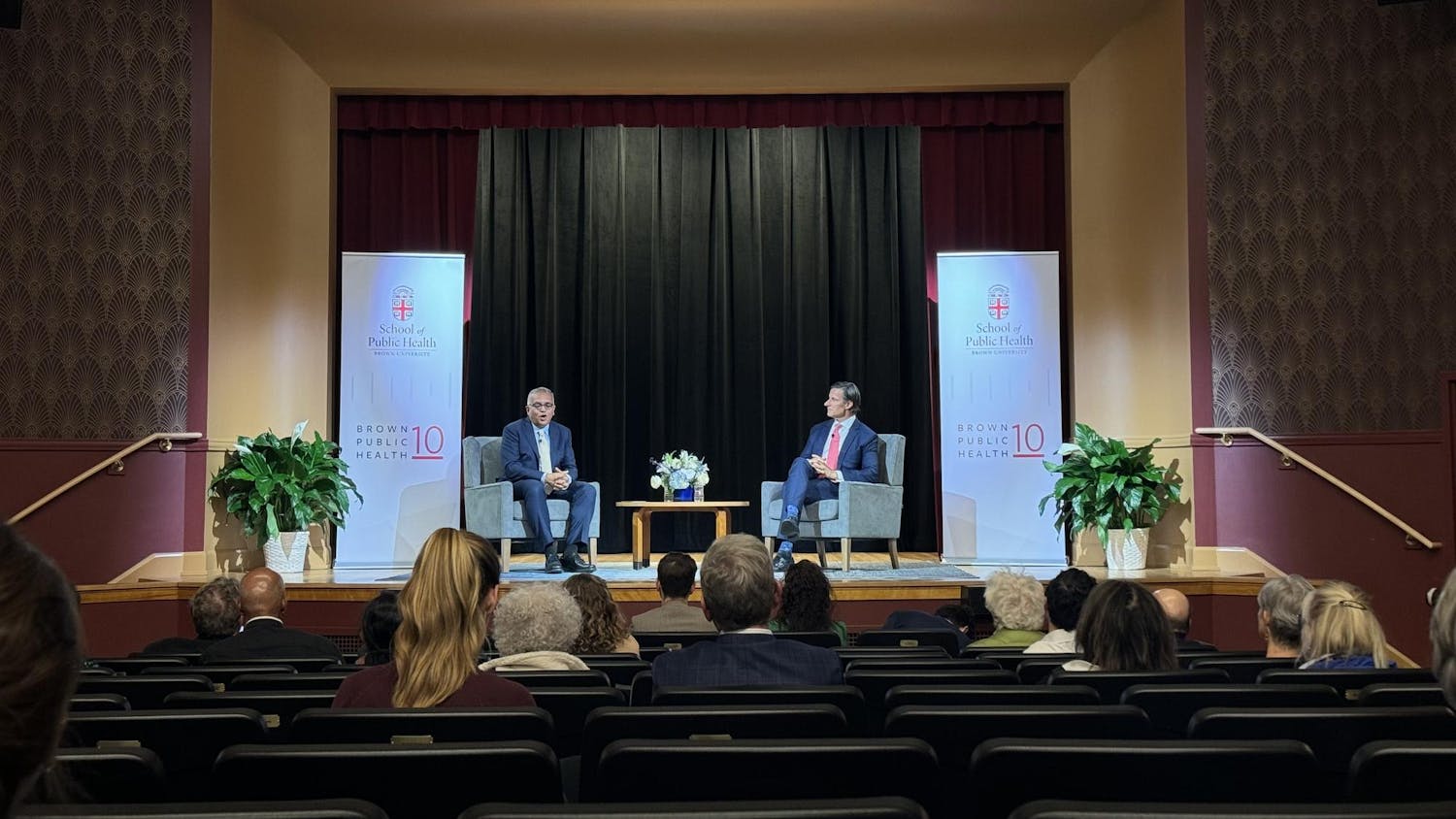The University announced the launch of the TRI-Lab — an initiative aimed to unite students, faculty members and community partners to address social issues collaboratively — at an event Wednesday morning at the Perry and Marty Granoff Center for the Creative Arts.
The lab will be piloted starting this fall and will focus on early childhood development in its first year. The initiative was designed by the Swearer Center based on conversations with 200 students, faculty members and community members.
Stephen Buka, professor of epidemiology and chair of the department, and Elizabeth Burke Bryant, executive director of Rhode Island Kids Count, will serve as the TRI-Lab faculty co-chair and community co-chair, respectively, for the 2013-14 pilot of the TRI-Lab.
Around 175 people attended the launch, which featured remarks from a variety of University and Rhode Island officials.
Dean of the College Katherine Bergeron spoke of the TRI-Lab as an important curricular development and a realization of the University’s academic philosophy.
“A 21st century education needs to actually be amplified with more real-world, hands-on experiences,” Bergeron told The Herald, adding that the TRI-Lab could put Brown at the forefront of public service education.
“(The TRI-Lab seminar) requires students to draw on the fullest range of capacities and skills that we associate with a liberal education,” she said at the launch. “I really think of it as the classroom of the future.”
Bergeron said Brown attracts students who want to make connections between the classroom and the world outside.
“The TRI-Lab allows a platform for them to make those connections and to make that difference,” she said.
Similarly, President Christina Paxson said it is the University’s job to place students and faculty members in a position to wrestle with social issues and search for solutions to them.
The TRI-Lab will generally have three year-long phases, Director of the Swearer Center for Public Service and Associate Dean of the College for Community and Global Engagement Roger Nozaki MAT’89 told The Herald. The pilot will begin with the second phase.
During the first year, the TRI-Lab will host conferences and other conversations to identify a topic of interest. “Community-based courses” could be one form of dialogue during the first phase, Bergeron told The Herald.
The second phase —“the meat of the process” — will be a year-long seminar composed of 25 students, five faculty members and five community practitioners, Nozaki said, though he added that the pilot will likely have 10 students, three or four faculty members and three or four community practitioners.
Research opportunities for students in the seminar will be a mix of community-based activities and analyses, Buka told The Herald. Student work will range from conducting developmental assessments of young children and household surveys to evaluating early education programs and performing economic analyses of government funding, he said at the launch.
The TRI-Lab offers “the chance for students to come and work with the tools of the scholar, and the knowledge and experience of the community experts is really unparalleled,” Buka said.
Seed grants will be available for participants in the third year to fund collaborative research and develop new courses and community initiatives, Paxson said. Nozaki told the The Herald the third year is “the implementation phase.”
The structure of the program allows there to be multiple TRI-Labs operating simultaneously at different stages, Paxson said.
Paxson said Bergeron and Nozaki approached her during her first week at Brown with the idea of a project that joined research, education and social engagement, and it was then developed over the course of the year by members of the Swearer Center.
When a more detailed proposal was brought before the Committee on Educational Innovation in the fall, “it was love at first sight,” said Bergeron, who co-chairs the committee. The committee included the TRI-Lab in its interim report in January.
Those who spoke at the launch said they were excited by the connections the TRI-Lab could forge among students, faculty members and the community.
“(The TRI-Lab) is the passion and creative vision of students linked with the commitment and knowledge of faculty and the community — in this case, the Rhode Island community,” Lieutenant Governor Elizabeth Roberts ’78 said. “This announcement and what you see here is a recognition that this is something that Brown is uniquely positioned to do, that Rhode Island is ready for, and you see community leaders here who are saying, ‘Yeah, we want to get involved.’”
Buka characterized the TRI-Lab’s collaborative model as a means of focusing research in the right place.
“Here at Brown we have a thirst for knowledge, we have a passion for serving, but it is good to remind us this alone is not enough,” Buka said. “Our efforts all too often take place too far removed from where we will be the most fruitful. Too often we’re putting our efforts where the light is brightest, not where the need is greatest.”
Multiple speakers discussed the importance of the pilot TRI-Lab’s focus area, early childhood development.
About 14,280 Rhode Island children live below the poverty line — near 20 percent of all children in the state, with a large portion of them living at half the poverty line, a level indicating extreme poverty, Bryant said.
“If you have to choose as to where one wants to influence the welfare of populations, starting early in life is the optimal place because it impacts so many different aspects of later functioning and well-being,” Buka told The Herald.
Bryant said Rhode Island is the ideal location to work on early childhood development because of its diversity and small size, calling the state “a working laboratory.”
“We’re a data-based organization. We’re going to have indicators of success,” Bryant said. “We’re going to focus like a laser beam on a couple of things that this can really contribute to a solution for and hold ourselves accountable for results.”
“We hope that Rhode Island can be a national model for innovative approaches to improve the well-being of all children under five. So we’re hoping with partnerships to begin a process of transforming what has been business as usual,” Buka told The Herald.
Graduate students and rising seniors can apply for the pilot seminar.

ADVERTISEMENT




